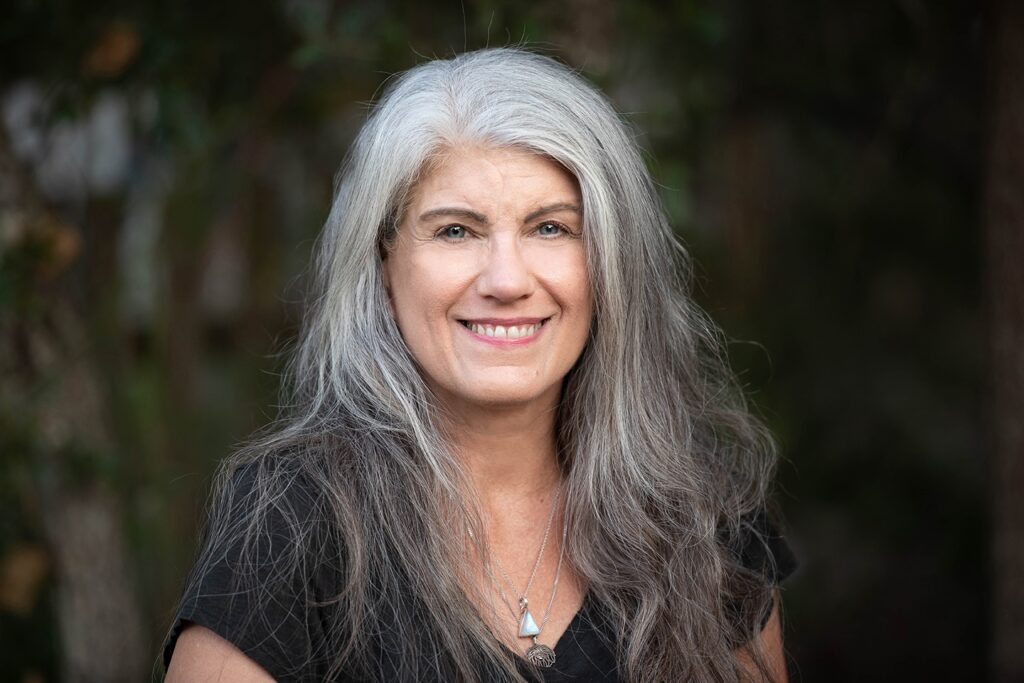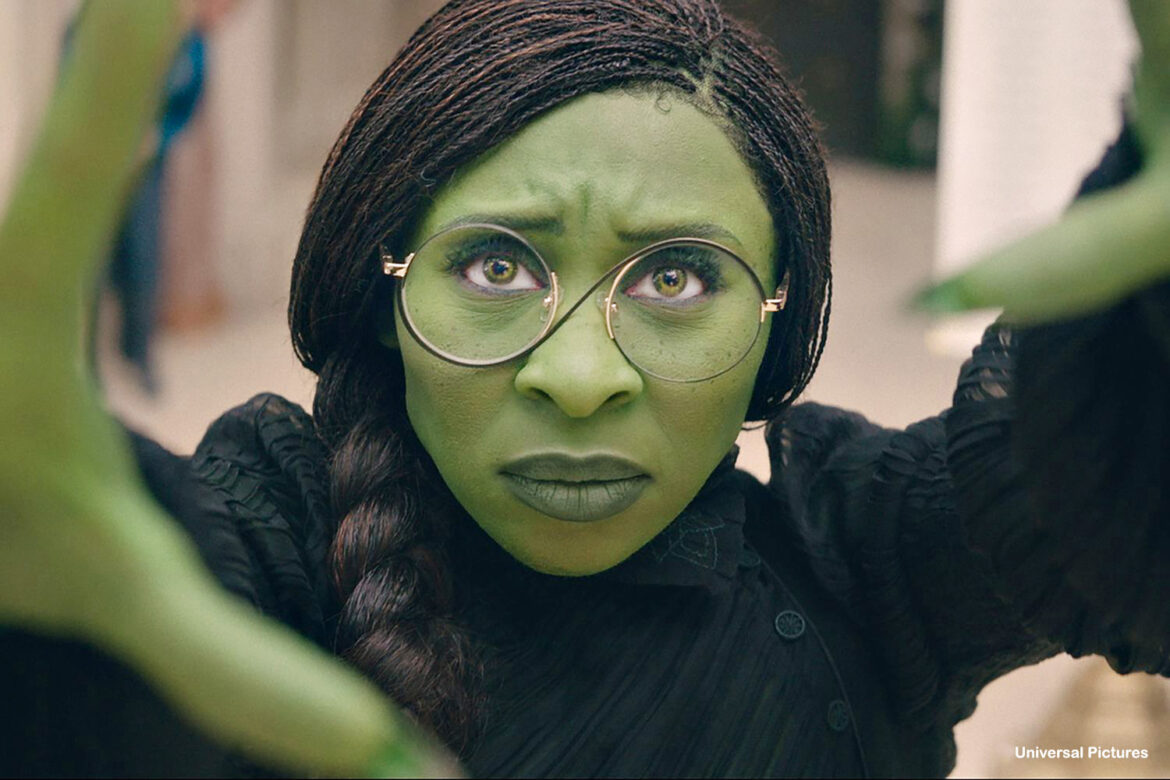By Laura Jenkins
I first saw Wicked on stage in 2009, while my husband and I were honeymooning in San Francisco. Though it didn’t make me a superfan, I enjoyed it enough to take family members to see it —on two separate occasions—when the tour came to town. But before the curtain fell for the third time, I found myself wishing it would hurry up and be over. I’d had enough.
So when my daughter invited me to see the film, I hesitated. Did I really want to sit through it a fourth time? No. But since she and her kids were only in town for 36 hours, I went. And by the end of the movie, I was so overcome with emotion I sat on the verge of tears through nearly ten minutes of credits trying to understand why it affected me so deeply. Two days later I saw it again. Within the week I preordered my digital copy. What happened to the woman who said she was finished with Wicked?
In a word, Elphaba.
Cynthia Erivo took a character I thought I knew and cracked her wide open. I’d seen three brilliant actors play Elphaba on stage, but until the movie I’d never really seen her. Not only did Erivo’s intimate portrayal give me a deeper understanding of the character’s story, it also shifted the narrative in a way that brought a great deal of clarity to my own.
The first thing that struck me when I saw her on an IMAX screen was her greenness. Of course I already knew what color she was. But seeing her up close made me think about why she was green: like me, she was the offspring of an affair. Her viridescent skin was a dead giveaway that she and her sister had different fathers. I don’t have statistics to back this up, but when people in monogamous relationships betray that agreement, they typically want to keep it on the down low. And that’s next to impossible to do with an accidental baby around—especially if she’s green. Children of affairs are, by nature, whistleblowers. We tell secrets by simply existing. Elphaba carried the stigma of her parents’ tryst on the outside. I’ve always felt green on the inside—tarnished. Tainted. I can’t remember a time when I didn’t have a gnawing sense I didn’t deserve to be here. My sister told me the truth about my biological father when I was 21, but the immense weight of the secret had metastasized into shame long before then. Since I couldn’t get anyone to talk about it, I drew my own conclusions: there must something about me that was too awful to tell. Was I born innately bad?
All signs pointed to yes. Turns out if you suspect you’re an aberration, you’ll find evidence to confirm it everywhere. I blamed myself for the abuse and neglect of my caregivers. I had learning disabilities and flaming ADHD in an era when the only explanations were stupidity, laziness or madness. And then, horrifyingly, my body shot to six feet tall when I was 12. Not only did I tower over my peers and most of my teachers, I had to wear men’s clothing at a time when I longed to express my budding femininity. By the time I finished high school I was a chain-smoking, beer-drinking pothead with a pretty serious eating disorder. I was desperate to be anyone but me.
That’s when I met a different kind of Wizard—the God of my Southern Baptist grandmother. As a kid, I’d walked the aisle at her church several times to ensure my spot in heaven. But a few years later I met some Southern Baptists my own age who told me if I prayed the Sinner’s Prayer God would put me to death—spiritually speaking—and make me a whole new person. That was the exact kind of miracle I’d been hoping for: I could kill myself without having to physically die. God would wipe my slate clean and give me a fresh identity, one that had value and lifelong purpose. All I had to do was pledge to live by the principles and precepts they’d distilled from the Bible. At 18, I lunged at their promise of security and belonging.
For the next two decades my number one aim was to prove myself to the Wizard, which really wasn’t God, or even a person. It was an airtight theological system that promised abundant life to those who followed Jesus with their whole hearts. There didn’t seem to be a clear consensus on what, exactly, constituted a life of abundance. But it definitely involved God giving His devout ones the desires of their hearts. Since a loving family was at the top of my wish list, I married at 20 and had three kids by 26. I dedicated myself to growing in my faith via regular Bible study, prayer and church attendance. And somewhere along the way I came to believe that distrusting myself and dismissing my own perceptions—in deference to conservative evangelical orthodoxy—was a spiritual virtue. To paraphrase the words of the Apostle Paul, the righteous must live by faith.
So when my husband of 20 years began his descent into the throes of mental illness and addiction, I clung to scriptural promises, which were mostly just stories or verses I’d plucked from the Bible and superimposed over my life. If God could keep Daniel from being eaten by lions, or Jonah from being digested by a whale, He could miraculously deliver me from the increasing severity of our circumstances. By the time I realized my unyielding faith wasn’t enough save us, we were bankrupt. Our home was posted for foreclosure. At the age of 44, I was divorced, homeless, jobless and had $200 to my name.
This is why Erivo’s portrayal of Elphaba’s first flight knocked the wind out of me. She’d spent her entire life believing her green skin and strange powers were evidence something was wrong with her. It was the Wizard, she thought, who could give her the validation and purpose she’d always longed for. But when she realized he wasn’t who she thought he was, she had no choice but to dive headfirst into the void. I knew that free fall. I knew the abject agony of others’ judgment and contempt echoing around me as I plummeted to what felt like certain death. As the scene unfolded, I sat frozen in my chair, willing myself to breathe. Suddenly, Elphaba saw herself, apart from all the noise and narratives of others.
“It’s me.”
I’m the one I needed to convince of my worth. I’m the one who can save me.
That’s when I realized I hadn’t simply been watching a cinematic remake of a stage musical I’d seen three times. I was engrossed in the story of a woman who discovered the grandeur of her power by trusting and accepting the entirety of who she was. For most of my life, I figured the odds of my doing the same were about as likely as flying.
I spent more than 40 years trying to defy the gravity of my own shame and self-doubt by changing, hiding or proving myself. I searched the world over for approval and worth, looking to everyone except the one person who had the power to give it to me: me. A few years ago I would’ve scoffed at that notion.
How, exactly, am I supposed to do that? Is there a switch somewhere I can flip? Are there pills or lessons I can take? Do I click my heels together three times?
For the life of me I couldn’t grasp the concept of determining my own worth.
And then one day I realized I had finally given myself permission to be the final authority on who I am. I can’t pinpoint exactly when it happened, or isolate a single factor that caused the shift. It was both gradual and cumulative, a process that included years of therapy and 12-step recovery. It came on the heels of thousands of words written in journals; hundreds of Microsoft Word pages filled with essays and stories I wrote towards publishing a book. It took identifying the narratives I was living in and tracing them back to their rightful owners. It involved a few trusted friends and close family members who helped me find the courage to let go of people and institutions that were keeping me mired in narratives I’d spent a lifetime trying to shed.
All of this had already transpired when I saw the film version of Wicked. But Erivo’s Elphaba gave me a scaffolding for my own story. There were numerous reasons I felt profoundly worthless for the first two-thirds of my life, many of them self-inflicted. But the mother of them all was my core belief I should never have been born. No one told me that, I just knew. I’ve always known. What I didn’t know is that no matter how many people I tried to please, no matter how many shapes I twisted myself into, no matter how much devotion to God or faith I had, I’d never be able to find true value or worth until I gave it to myself. Apparently a lot of people already knew this, which is baffling to me. Why did it take me so long to understand something so fundamental about being human? That’s a whole different story. But I think I got here as quickly as I could. And as contradictory as this may sound, I also believe I had the power all along. We all do. Some of us just have to take the long way home.
Laura Jenkins is a writer and photographer who lives in the Texas Hill Country with her husband and three rescue animals. She cut her journalistic teeth writing about Christian music and other matters of faith back in the nineties. In the early aughts she turned her photography hobby into a career and put herself through college, earning a bachelor’s degree in English, Writing and Rhetoric. Since then she’s written scores of book reviews, literary, travel and lifestyle features, and personal essays. She’s working on a memoir closely related to this story. If you’d like to read her NPE backstory, you can find it here. Find her on Twitter and Bluesky, and visit her website at www.laurajenkinswriter.com


